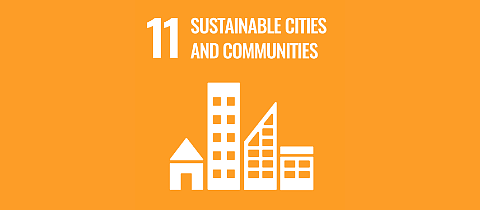e-Cargo bicycles: Insights into users' behaviors
| Type of project: | Empirical research |
| Departement: | Operations |
| Date: | May 2022 - March 2023 |
| More Info: |
Project funded by E4S, more info here |
Faculty



Dimitri Marincek
Institute of Geography and Sustainability,
University of Lausanne
Researcher ProfileSDGs tackled in this research project


Description
On August 2, 2015, the United Nations adopted the Sustainable Development Goals (SDGs), as a universal call to action to end poverty, protect the planet, and ensure that by 2030 all people enjoy peace and prosperity. More than six years later, it is honest to say that we are still very wide of the mark. Significant challenges still need to be solved, especially for the largest producer of energy-related CO2 emissions: the transportation sector. A core challenge is how to find sustainable solutions to accommodate the ever increasing number of trips happening in our limited urban spaces. A promising solution that is beneficial for both the environment and human health, is e-cargo bikes that are getting more and more attention, also due to their potential for urban logistics.
By offering sustainable first and last mile mobility solutions for both the transport of people and goods, e-cargo bikes are now on the front line of the discussions to reduce carbon emissions. In despite of the increased discussions they generate in the public sphere, the academic literature on the topic remains more spare. Some recent studies have started to consider them as last-miles delivery vehicles, but a lot of unknowns remains regarding how people use them in their daily life. It starts with simple, yet important, questions such as who is using them? and for which trip purposes? Answering these questions is critical to fully exploit the potential of e-cargo bikes and to make them a post-pandemic sustainable mobility solution.
More precisely, our research team wants to focus on the use of e-cargo bikes in Switzerland. To do so, we designed surveys and distributed them among users of our partners, as well as members of our institutions. The surveys included a series of questions intended to better understand (1) who are the adopters, (2) under which circumstances and conditions are they using e-cargo bikes, and (3) for which trip purposes do e-cargo bikes constitute a sustainable transport alternative, e.g., is it for commuting purpose with kids, or is it also to collect groceries or packages from a picking point?





